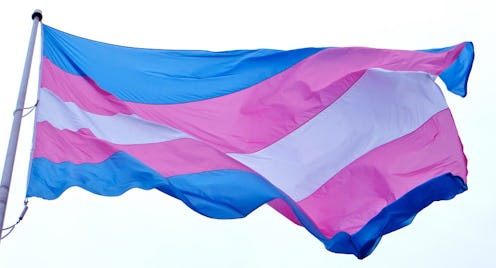While several neighborhoods throughout the United States are known for their history of LGBTQ activism, no place has been specifically designated for the trans community — up until now. A portion of San Francisco is on track to become Compton’s Transgender, Lesbian, Gay, and Bisexual (TLGB) District, and if the legislation comes through for it, it'sbelieved that it will be the first transgender historical district in the country. With LGBTQ rights increasingly threatened, a place to honor and protect gender-nonconforming people is more important than ever. (Bustle has reached out to district supervisor Jane Kim and developer Group i and will update if/when we hear back.)
The area, located in the Tenderloin neighborhood of San Francisco, is named after Compton’s Cafeteria, a coffee shop that became the focal point of an uprising that is central to transgender history in American in 1966, three years before the Stonewall uprising in New York City. The uprising came in response to the cafe and police's mistreatment of trans women in the neighborhood, who were frequently arrested for "female impersonation" and engaging in sex work.
The event started when a trans woman splashed coffee onto a police officer following an arrest and picked up steam after trans women were consequently banned from local restaurants. The treatment of trans people by the police was so brutal that there are few historical records of the incident; in 2005, however, a documentary, Screaming Queens: The Riot at Compton's Cafeteria, investigated the event in depth, providing what's probably the clearest picture of it we have.
Compton's no longer exists, but the proposed district will include a five-block area around its previous location. The designation aims to foster "a safe, welcoming, and empowering neighborhood lead by trans people for trans people," according to a press release provided to Curbed San Francisco. This includes giving trans people access to affordable housing — which is incredibly important given that 20 to 40 percent of homeless youth in the United States are LGBTQ — and supporting businesses that are owned by and cater to trans people. The district is also aiming to preserve Compton's and other historically significant buildings for the education of future generations.
Last year, San Francisco’s Planning Commission made the controversial decision to permit an apartment and hotel complex to be built in the same region, despite LGBT activists' requests to halt the construction. But in January the developer Group i reached a deal with the complex's opponents. It'll pay $300,000 to support the new district, as well as a trans community center and trans-owned businesses.
Jane Kim, who supervises the district that includes the Tenderloin, believes the time is ripe for a place like this. "The lower Tenderloin is the most important neighborhood in America for transgender history, culture, and civil rights," she told Curbed San Francisco. "In the last few weeks our federal government has made it clear that minority communities have never been more at risk in America."
